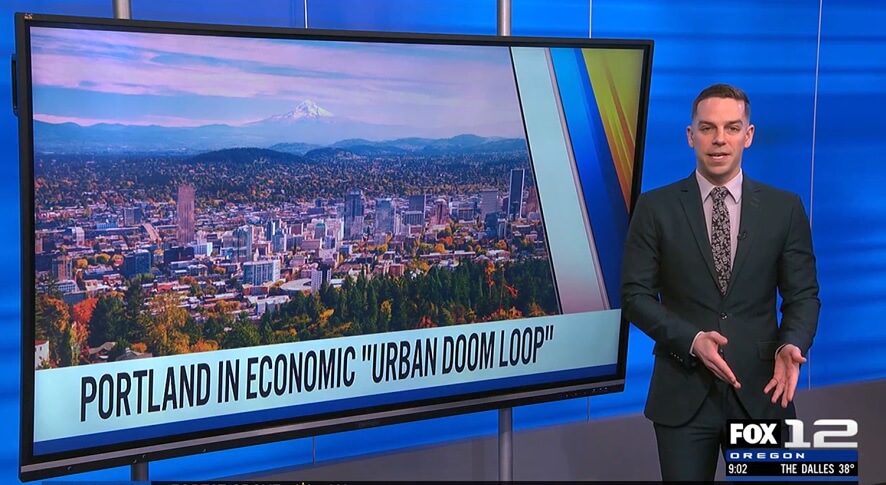By Taxpayers Association of Oregon Foundation,
A newly formed City Council committee met this week to address Portland’s economic woes, and the picture painted was far from rosy. A report presented by Prosper Portland and ECONorthwest revealed alarming trends that should worry any taxpayer: population decline, job losses, and a hollowing out of the central city.
While the City Council acknowledged these challenges, Portlanders are left wondering if their proposed solutions will amount to anything more than the same tired tax-and-spend policies that have contributed to the current predicament.
The ECONorthwest report painted a sobering picture: Portland’s population continues to shrink as higher-income residents leave Multnomah County, while job growth lags behind peer cities. The city’s economic recovery remains fragile, with its downtown core facing persistent challenges from reduced foot traffic and high office vacancy rates. “We are seeing early warning signs” of an urban doom loop warned ECONorthwest President Lorelei Juntunen. She asked, “What do we do to get as far away from that pattern as possible?”
This revelation, coupled with the exodus of higher-income households and a dwindling birth rate, raises serious questions about the city’s long-term financial health. Council members, while acknowledging the data, seemed more preoccupied with semantics than solutions. Councilor Mitch Green, for instance, dismissed the “doom and gloom” narrative, and said the solution is to “accelerate the rate of housing production.”
Many of the committee members hinted at continued the same old tired policies and programs relying on increased spending and a reliance on taxpayer funds. Councilor Loretta Smith championed workforce development programs, a noble goal, but one that often translates to ballooning budgets with questionable returns.
In a surprising twist, however, Councilor Jamie Dunphy, noted that Portland’s business taxes are stifling small businesses:
“I want to have conversations about our taxation. I think that right now we need to raise the floor on city business taxes. I think that right now, small entrepreneurs, people who are starting their businesses—Uber drivers—are having to pay pretty significant taxes towards our business license, taxes towards the city when they’re barely struggling to survive and pay rent as it is. We are one of the highest business income taxes and have one of the lowest floors in the country.”
Unfortunately, Dunphy is just one voice out of twelve on the city council. And so far, the councilors seem more concerned with expanding programs rather than cutting costs and reducing the tax burden on the city’s long-suffering residents and businesses.







